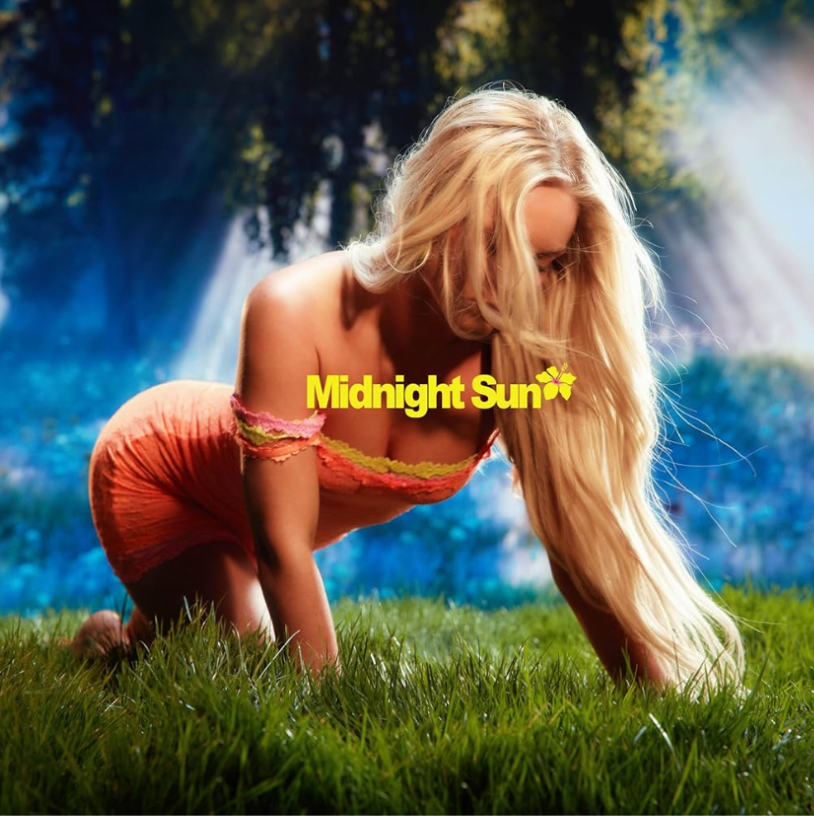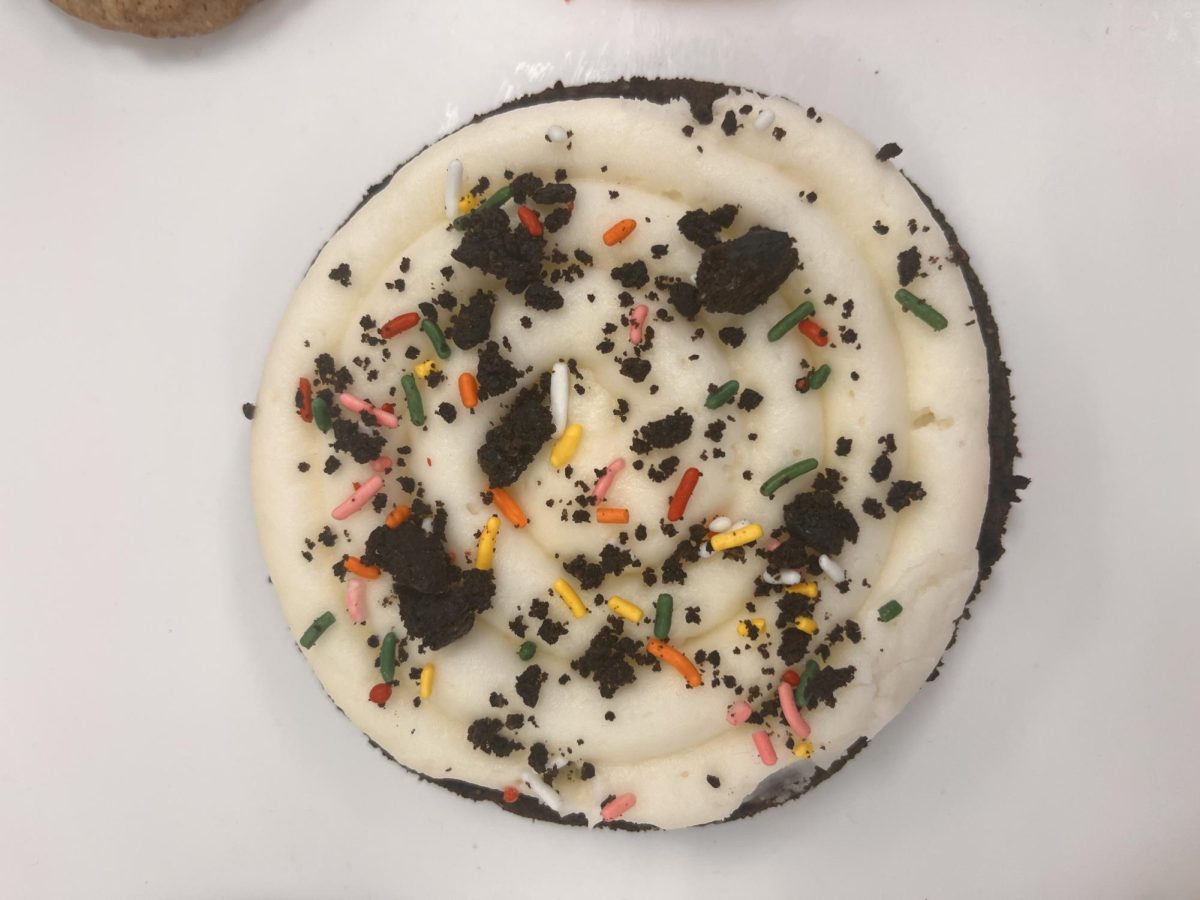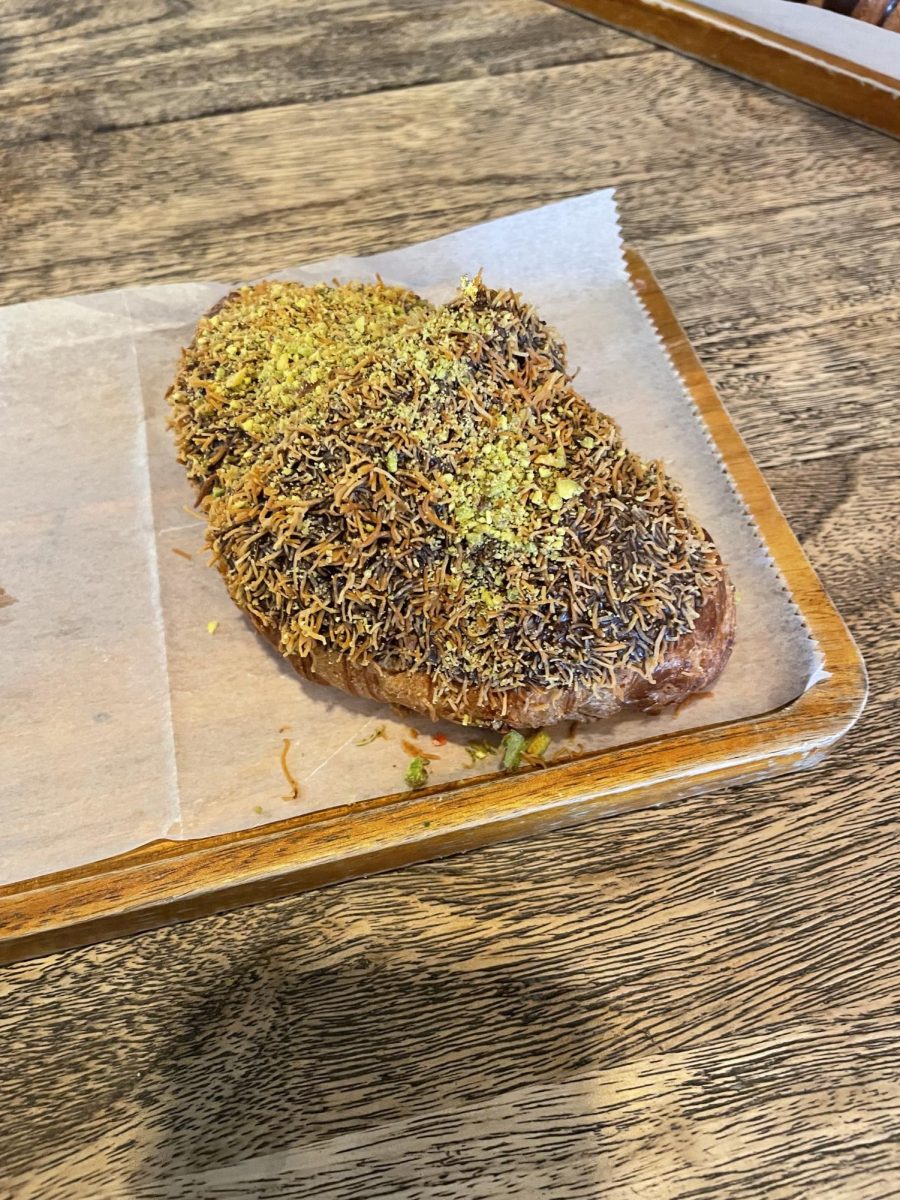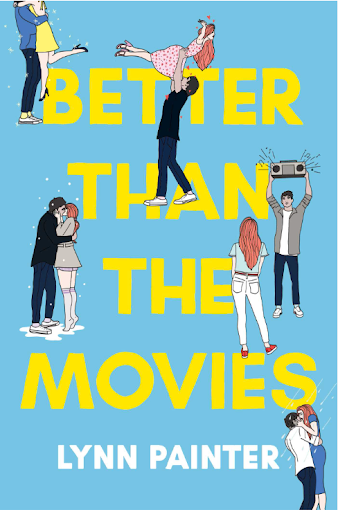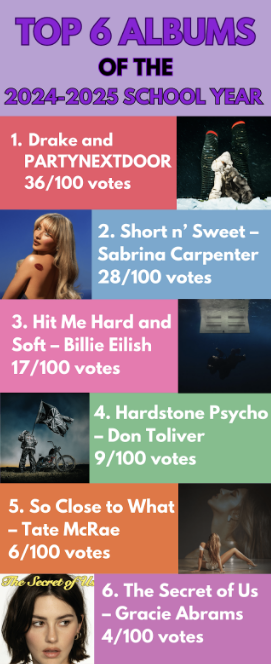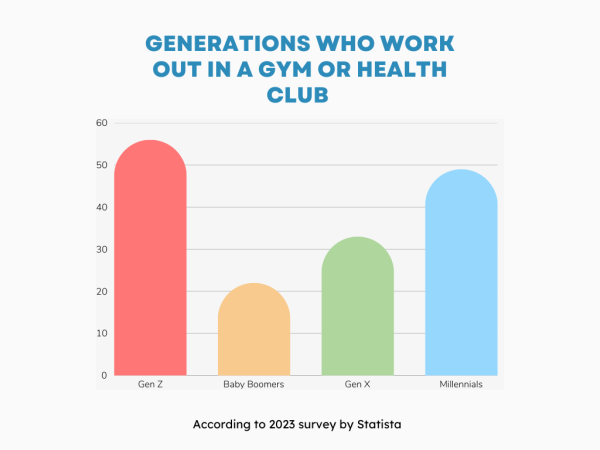
Over 56% of Gen Z, who are currently ages 12 to 27, work out or participate in a sport; more than other generations, according to Statista. Contributing to this are social media platforms like TikTok and Instagram, generating trends that can influence and inspire a healthy lifestyle.
FitTok, the fitness side of TikTok, fuels gym and diet-related content, influencing adolescents, particularly females and young girls, to get in shape. Through this subsection of TikTok, many other fitness trends are also accumulating, including the “summer body” trend, according to Betterhelp, which focuses on getting one’s body toned in preparation for summer to fit beauty standards. It highlights workout routines and dieting strategies to help people feel prepared during warmer months. According to Betterhelp, this can be toxic towards adolescents; however, on the other hand, it also influences teens to improve their lifestyle.
“I started going to the gym two years ago, but I stopped going because I was having a hard time balancing my grades,” sophomore Manizah Mahmood said. “I just recently started going again because at the start of the year, there was a winter arch trend on TikTok, so I felt motivated to go. ”
According to a study by the University of Birmingham and Orebro University, 1,300 boys and girls aged 13-18 took part in small focus group interviews, sharing examples of health-related social media experiences. The study also showed that boys and girls focused on different types of fitness. For instance, boys were inclined to be more muscular and girls to be more toned. The study found that social media encouraged adolescents’ motivation to become more physically fit and make healthy diet choices.
“I play football and soccer but I still feel as if I have to go to the gym to be more fit, because I see teens my age on social media posting about their work out routine and other stuff, so that just makes me want to go,” sophomore Jefferson Salazar-Orantes said. “I also feel that it’s a good experience going to the gym or doing any sort of exercise with your friends. It’s a really good way to bond and make memories.”
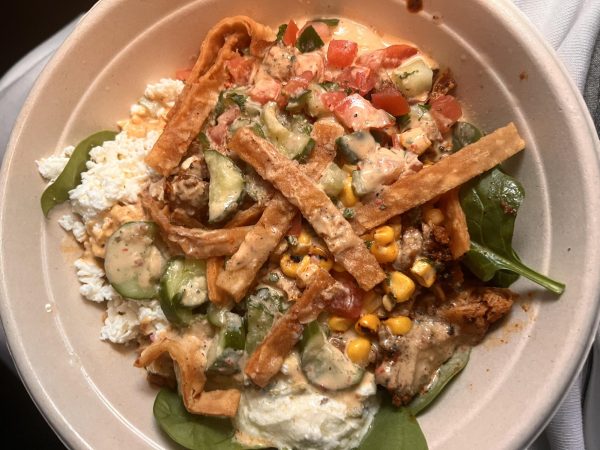
(Photo used with permission of Isabella Santos Maia)
According to Texas Health, Gen Z is more likely to prioritize healthy eating and regular exercise, alongside managing mental health. This has led to a rise in organic and natural product consumption and the avoidance of artificial coloring and flavoring.
“I think that we see that some people are having healthy diets. You see that in their choices,” physical education teacher Marc Matthie said. “I see more salads, food from home and healthy choices in the cafeteria. Even the snacks tend to be somewhat healthy, a lot of times I don’t even take their snacks because they’re so healthy.
According to the National Library of Medicine, despite the positive implications that can be yielded, TikTok’s diet culture can potentially be a harmful practice for body image, but most videos promote the idea of healthy eating. The study shows that alongside negatives of the platform, there are positives such as the embrace of body positivity and engaging content that adolescents interact with, which can potentially be an opportunity for health professionals to positively influence the public’s health.
“I generally hear a lot of negative stuff about social media, especially TikTok, but in reality, I think social media has a really positive impact on many teenagers’ lives, health awareness being a good example,” sophomore Isabella Santos Maia said.


